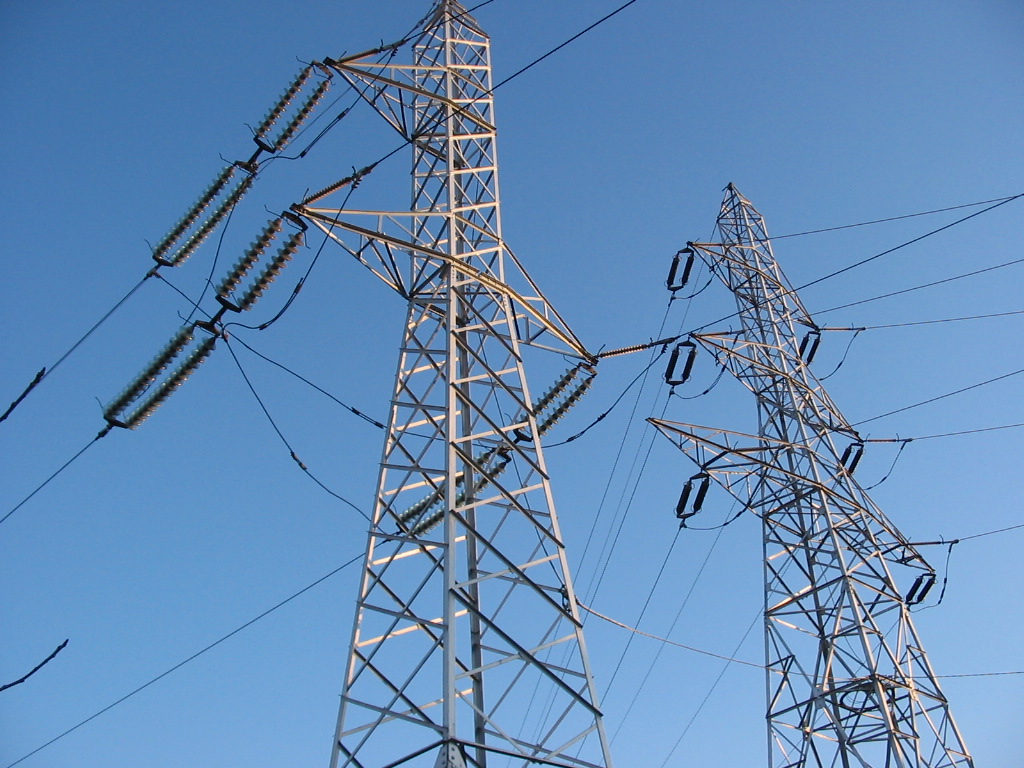How to Combat Climate Change
We spoke with over 100 thought leaders from leading organizations across multiple sectors to understand the most impactful strategies for combating climate change. Here are our findings.

1. Advocate for Pro-Climate Policy

When it comes to taking individual action on climate change, many people may seek to jump straight into commonly thought solutions: installing solar panels, reducing energy use, etc. While those tangible actions are critical to reducing emissions associated with climate change, many experts have noted that the most important action of anyone looking to make a difference has to start with the higher-level topics related to advocacy and education. Under that umbrella are the ideas of getting involved and then advocating for the larger, systemic level changes in a smart and informed way.
Get Involved
When you realize the seriousness and the wide-scale of action needed to try to address climate change, you’ll have a natural inclination to want to get involved. Among the most important ways to do so, according to the thought leaders we talked to, is simply in the form of education, both educating yourself and educating others. Taking this involvement to the next step would involve moving to tangible advocacy, such as joining climate advocacy groups that are putting the collective passion of individuals together into group action to create change, pressure public leaders, and spread the movement further. Then, whether through individual decision-making or as a part of these advocacy groups, a critical area of involvement is to vote for climate positive candidates and, once they’re in office, to then hold them accountable.
Advocate for Effective Policies
A huge area of the involvement comes via the political process and advocating for climate change policies. One of the most challenging aspects of pushing for climate policies these days, though, is determining what the most effective climate policies are. We talked with experts spanning across many different fields of expertise and, as a result, many different policy priorities were identified as critical.
- Economic approaches, looking to make emissions in some way more expensive and thus allow the free market to then weed out the climate-negative activity
- Policies that adjust the operation of energy markets to allow for effective action against climate change
- Including various types of regulation of the fossil fuel industry can reduce the emissions associated with them
- Shifting that government support more towards clean energy sources would be an effective policy mechanism to fight climate change
- Mandating renewable energy generation is a more direct policy approach
- Cleaning up transportation is another critical sector to tackle
- Advocates also point out the need to reduce emissions associated with the built environment
- Widely speaking, the appropriate policies for utilizing natural resources can also move the needle
- At a fundamental level, another consideration is for public policy to do more to support enhanced and innovative technological solutions
- The last area of focus comes via bigger picture policies are important to consider (such as a just transition and harnessing smart growth)
2. Change Your Food and Diet

Food is an area of life that might be the most personal to us, but the impacts of how and what you eat can indeed be global in scale. The agricultural process, the food production industry, and transporting foods from where they are sourced to where they’ll be consumed in the end all create a level of emissions that impacts the climate (which will in turn affect what food can grow where in the future). If we want to prevent the most damaging impacts of climate change, then addressing food and diets is critical. Personal choices like eating more plant-based foods or finding ways to eat locally produced foods can have a notable benefit in reducing your carbon footprint.
3. Change Your Transportation Habits

In an increasingly spread out and interconnected world, finding a way to get from Point A to Point B is a daily task that we may not think too much about. But considering the emissions associated with many of the most common forms of transportation, making climate-conscious decisions with our transportation decisions is one of the most consequential green acts one can take. Households can consider trading in their gas guzzler for an electric vehicle, forgoing personal transportation for mass public transportation whenever possible, or even finding creating ways to avoid air travel, the most carbon-intensive way to get around.
4. Change Your Energy Provider

A household’s daily energy consumption, whether from an electric utility or a gas provider, is among the most visible and tangible ways in which everyday people interact with emissions and climate change. By ensuring a greater portion of the energy used is coming from carbon-neutral sources, individuals can actively address their carbon footprint. Such action can include installing solar power on your own home to reduce the amount of energy you’re pulling from fossil fuel generation on the grid, or it can even come from utility-sponsored programs like opting for green energy providers.
5. Reduce/Re-Use/Recycle More in Daily Life

Since the rise of environmental awareness and conservation came about decades ago, we’ve been taught from a young age that one of the best ways to live ‘green’ was to be sure to follow the three R’s: reduce, reuse, and recycle. The most we engaged in these three activities, the less material waste would end up in landfills, and the cleaner the planet could be. These types of actions ring true for a generation now focused on climate action, as they can minimize the needless emissions of carbon. We can reduce power consumption, such as via energy efficiency upgrades to a home; we can be sure to engage in responsible and thorough recycling programs to reduce the emissions associated with the production of new materials; and we can reduce waste material that’s being sent to landfills and creating associated methane production.
6. Change How You Invest Your Money

For many years, people across the world have recognized that, while voices and votes were important, some of the most effective strategies for influencing change came via their wallets. Recognizing the importance that companies, organizations, and even governments will place on where people choose to spend their money (or willingly avoid spending their money), speaking with dollars is an important strategy for any fight, and that rings particularly true for climate action. Advocates for a more sustainable future can send a message by being sure to invest their hard-earned money in companies, investment funds, and other financial vehicles that are taking action on climate change today. Just as powerful, individuals can choose to actively divest their financials from organizations that support environmentally dangerous practices and recklessly emit carbon dioxide.
Our Process
Climate change is, put simply, one of the greatest challenges our modern society has ever faced. And it needs to be addressed now. After many years of shining a light on this crisis, the urgency of tackling the climate change crisis head-on has finally gained consensus and is a recognized goal across the world. But that success doesn’t mean success is guaranteed, as now the challenge is creating agreement and momentum towards successfully implementing necessary actions to mitigate climate change.
Many people will argue that putting the onus on the individual to make personal changes (even sacrifices) is letting off the hook the large corporations and governments who are responsible for the bulk of climate-changing carbon emissions, while others still will advocate for personal responsibility and note that it starts with individual action to make a true difference. This debate is a particularly important one, as with limited time, resources, and attention, efforts towards combatting climate change must be directly focused.
To dive into this debate of accountability between governments vs. corporations vs. collections of individuals, see the fully formed outline on this page. In the end, we must recognize that the truth lies somewhere in the middle. Promoting education and action from a bottom-up and top-down approach is so critical, and each is a vital piece of the puzzle should we collectively hope to succeed in mobilizing towards successful action in the face of climate change.
Based on conversations we’ve engaged in with over 100 thought leaders across all industries, sectors, and organizations related to climate and sustainability, we’ve synthesized the potential solutions that we should be focusing on, both in terms of individual actions, corporate engagements, and public policies to prioritize. These conversations with experts and advocacy organizations are actively ongoing (so be sure to reach out to us if you would like to participate), and we’ve gathered perspectives from these 100+ experts, as well as additional information and educational resources, to share with you as you look to educate yourself and take action in climate change. The main areas of focus that continue to come up in these conversations are:
These pages are constantly growing as we engage more people and organizations in conversation about these critical topics. So check back often, as these can be considered living documents and the conversations built using quotes and inputs from those who have agreed to talk with Solar Tribune are consistently deepening.
If you’d like to participate in this project, reach out to us and we’ll be happy to schedule a call to discuss your views. And a very special thanks to all the experts, organizations, and their representatives who have contributed their time and effort in participating in these important dialogues:
- 350.org
- Acadia Center
- ACT Alliance
- Alan Robock
- Alysia Helming
- American Sustainable Business Council
- Americans for Clean Energy Jobs
- …and Then There’s Physics
- Andrea Dutton
- Andrew Weaver
- The Arctic Institute
- Arrell Food Institute, Department of Geography, Environment, and Geomatics at the University of Guelph
- Atmos Financial
- Azul
- Blue Frontier
- CA Solar & Storage Association
- Center for Ecological Living and Learning (CELL)
- Center for Sustainable Climate Solutions
- Center for the Advancement of the Steady State Economy (CASSE)
- The Change Agency
- Chris Nelder
- Citizens’ Climate Lobby
- Clean Energy Action
- ClearPath
- Climate Action Network
- Climate Analytics
- Climate Generation
- Climate Interactive
- The Climate Mobilization
- Climate Policy Initiative (CPI)
- The Climate Reality Project
- Climate Ride
- CoilPod LLC
- Community Environmental Legal Defense Fund
- ConservAmerica
- Cornell University, Ecology & Environmental Biology
- DanChurchAid
- Diana Imbugwa
- Dina Gilio-Whitaker
- Dogwood Alliance
- Drawdown
- Dusk Mobile
- Earth Uprising
- Eco Equity
- Ecological Sequestration Trust
- http://ecoplanning.ca/
- Emil Dimanchev
- Energize Delaware
- Energy Choice Coalition
- Environmental and Energy Study Institute
- Farah Naz Ahmad
- Fossil Free Media
- Fresh Energy
- Generate Capital
- George Mason University Center for Climate Change Communication
- Global Change Program at Georgia Institute of Technology
- Global Cool Cities Alliance
- Global Warming Solutions Campaign
- The Great Gathering Nonprofit
- Green America
- Green Building United
- Green for All
- Green State Solutions
- The Greenlining Institute
- Greg Nemet
- Grid Strategies LLC
- Hailstone Communications
- HomeTips.com
- Howie Hawkins, Green Party Candidate for President
- Hyperion Executive Search
- Illinois Environmental Council
- Ilan Kelman
- iMatter
- Independent Green Party of Virginia
- Institute for Local Self-Reliance
- International Budget Partnership
- Jamie Henn
- Jeff McMahon
- Jill Pelto
- Jose Trinidad Castaneda
- Julian Brave Noisecat
- Justin Mog, Sustainability Initiatives at University of Louisville
- Ken Nwarache
- Kentucky Conservation Committee
- Lamont-Doherty Earth Observatory (Columbia University, Earth Institute)
- Larry Kraft
- Lauren Gifford
- Lauren Kuby
- Livelihoods Knowledge Exchange Network (LiKEN)
- Mark Burger
- MCE
- Michelle Tyler
- Montgomery County, Maryland
- Mothers Out Front
- Munk School of Global Affairs and Public Policy
- My Climate Story from University of Pennsylvania
- National Center for Science Education (NCSE)
- National Oceanic and Atmospheric Administration Climate Program Office
- Near Zero at Carnegie Institute for Science
- New York Communities for Change
- Nicole Fabricant
- Nuclear Information and Resource Service
- One Earth
- Our Climate
- Our Horizon
- Pale Blue Dot Media
- Paula Kivimaa
- Pecan Street, Inc.
- Progressive Power Labs
- Protect Our Winters
- R Street
- Rainforest Trust
- Rare
- ReGrid
- REN21
- RenewComm
- Rocky Mountain Institute
- Sabin Center for Climate Change Law, Columbia Law School
- Salem State University
- Saxe Facts
- Sierra Club
- Smart Cities Dive
- Smart Electric Power Alliance
- Smith School of Enterprise and the Environment, Oxford University
- Social Venture Circle
- Society of Environmental Journalists
- Sol-Up USA
- Sol Ideas Technology Development
- Southeast Climate & Energy Network
- Southern Oregon Climate Action Now (SOCAN)
- Stop Ecocide
- Sunrise Movement
- Sustaining Way
- Tamara Toles O’Laughlin
- THIS! Is What We Did
- Three Squares Inc.
- Tim Jones
- TYF
- Union of Concerned Scientists
- Universite libre de Bruxelles
- University of Alaska Fairbanks
- University of York
- Unthink Solar
- Vote Climate U.S. PAC
- Will Steger
- Winnie Cheche
- World Resources Institute
- World Wildlife Fund – UK
- Yahya Al-Qahtani, Howard University Department of Physics and Astronomy
- Yale Climate Connections
- Young Evangelicals for Climate Action
- Zero Energy Project
- Zero Hour
